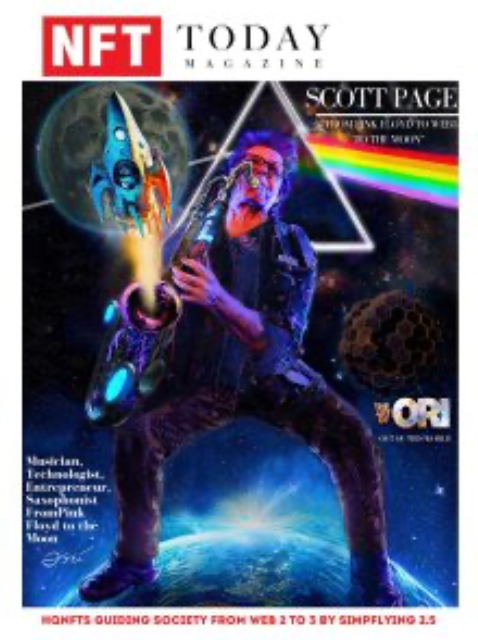DNA Disaster: 23andMe’s Collapse Exposed Millions. This Doctor Thinks Blockchain Could Save Your Genes.
Staff Writer • 2025-05-07
Your genetic privacy is compromised, your data is for sale, and blockchain might be the only way out. For millions, 23andMe seemed like a fun, harmless peek into ancestral roots, health predispositions, and hidden royal connections. But when the DNA testing giant spectacularly collapsed, it exposed a troubling secret at the heart of the genetic testing industry: your DNA was never truly yours to begin with. Now, millions of genetic profiles could be up for grabs, and Dr. Anmol Kapoor, founder and CEO of BioAro and Anryton, says it’s about time we realized just how vulnerable our genes—and privacy—have become. “People gave their data voluntarily, believing they were simply tracing their family tree,” Kapoor said on the Stonks Go Moon Podcast. “But behind the scenes, companies like 23andMe used that data as an asset, profiting by selling it to pharma companies or research firms. When their systems got hacked, everyone's genetic privacy was compromised—not just the users, but their entire families.” And it’s about to get worse. Why 23andMe’s collapse is a wake-up call for genetic privacy The collapse wasn’t just a financial implosion—it’s a privacy catastrophe. Under U.S. bankruptcy laws, Kapoor explains, customer data like genetic profiles can legally be sold off to pay creditors. This loophole means highly sensitive genetic details could end up in the hands of anyone willing to pay for them. Kapoor points out the chilling implications: “Imagine someone leaving your DNA at a crime scene. How do you defend yourself against your own genetic fingerprint?” As technology improves—particularly AI—genetic fragments could soon become tools to predict everything from your children's health risks to your family’s deepest vulnerabilities. “The risk isn’t hypothetical; it’s happening now,” Kapoor says. Blockchain could give back the keys to your genetic kingdom Kapoor’s answer is to hand genetic data back to the individual, secured by blockchain technology. Through BioAro and Anryton, Kapoor aims to empower individuals by allowing them to retain full ownership, control who accesses their genetic information, and directly profit from it. Currently, Kapoor notes, healthcare data ownership is ambiguous at best. Doctors and institutions are custodians, but the data often remains trapped behind paywalls or corporate firewalls. Kapoor believes blockchain could democratize this. “With blockchain, consent and disclosure become crystal clear,” Kapoor emphasizes. “People decide exactly who accesses their genetic data, when, and how much access they get.” Your genetic data might be worth more than you think Beyond privacy, Kapoor says blockchain-enabled data ownership could also become financially rewarding. A single genome can be worth upwards of $1,000, but genetic information about rare diseases or specialized conditions might fetch significantly more. Under Kapoor’s model, individuals—not corporations—would profit directly. “Families could potentially earn tens of thousands of dollars from their genomic data,” Kapoor says. “Why should companies profit from your DNA, while you get nothing?” Big Pharma isn’t thrilled, and that’s exactly Kapoor’s point Unsurprisingly, Kapoor’s blockchain vision isn’t universally popular, particularly among healthcare giants and genomic companies whose business models depend on keeping genetic data behind closed doors. “If you disrupt the power dynamic by empowering individuals, the kings won’t be happy,” Kapoor explains. “But this isn’t just business—this is about human rights. We’re talking about data that defines your past, present, and future.” A future where your DNA belongs to you If Kapoor’s ambitious plans succeed, we could enter an entirely new era of healthcare—one defined by transparency, ownership, and individual empowerment. He imagines a future where people not only protect their genetic identities but actively leverage them for personal and financial benefit. “Imagine living to 100-plus years, empowered by the knowledge and control of your genetics,” Kapoor says. “This isn’t science fiction anymore. It’s achievable right now.” The 23andMe collapse, painful as it is, might finally force us to rethink who owns our genes—and why blockchain might just be our best shot at reclaiming them.
See More Posts
A look at how NFTS, Web 3, Gaming, Cryptocurrencies and Blockchain are reshaping businesses across the globe.
@NFT Today Magazine


